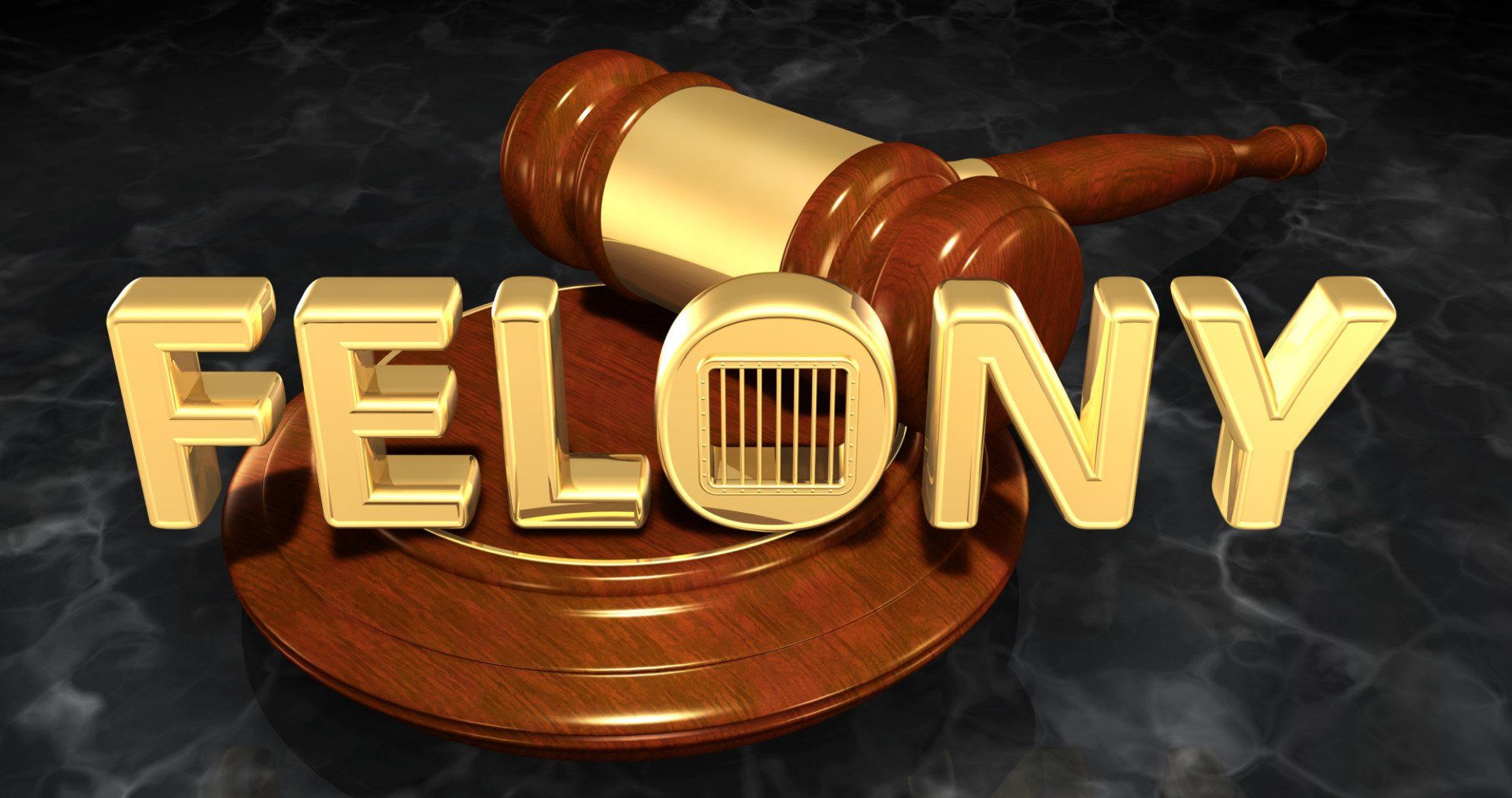Blog Layout
Understanding the Timeline: How Long Should You Expect Probate to Take?
Jan 15, 2020
The loss of a loved one is one of the most stressful things a person can go through.
Losing a loved one can be a difficult enough process without the added stress of dealing with their estate.
A question that many families ask during this processes is, "How long does probate take?" The answer to this question is that it depends.
Sometimes it takes just a few months and sometimes it takes years. There are many factors that go into this analysis.
Most people don't even know what probate means before they go through it for the first time. In this article, we'll provide an overview of what to expect during the probate process and take a closer look at how to estimate how long it will take.
Losing a loved one can be a difficult enough process without the added stress of dealing with their estate.
A question that many families ask during this processes is, "How long does probate take?" The answer to this question is that it depends.
Sometimes it takes just a few months and sometimes it takes years. There are many factors that go into this analysis.
Most people don't even know what probate means before they go through it for the first time. In this article, we'll provide an overview of what to expect during the probate process and take a closer look at how to estimate how long it will take.
What Does Probate Mean?
Probate is the legal term for the court-supervised process of settling the estate of a deceased person.
If the person left a last will and testament, the probate process validates the will and settles any disagreements or disputes over inheritances and stipulations in the will. If there is a will, the probate process gives the person named the executor the legal authority to oversee the estate by paying debts and distributing assets.
If the deceased person didn't leave a will, the court will appoint someone to be the administrator of the estate.
If the person left a last will and testament, the probate process validates the will and settles any disagreements or disputes over inheritances and stipulations in the will. If there is a will, the probate process gives the person named the executor the legal authority to oversee the estate by paying debts and distributing assets.
If the deceased person didn't leave a will, the court will appoint someone to be the administrator of the estate.
What to Expect During the Probate Process
The official probate process
varies by state, but the general process is the same in every jurisdiction.
Let's break it down step by step. First, let's assume that your loved one did leave a will. The first step is in the process is called probating the will.
To do this, the official document has to be presented to the probate court. If there was an executor named in the will, then he or she will schedule a hearing with the court to present the will.
If there is no executor, then the court will name an administrator of the estate. This person is also commonly referred to as a personal representative. Notice of the probate hearing will be given to all heirs and beneficiaries of the decedent.
The personal representative of the decedent is responsible for conducting an inventory of the estate's assets. These assets then become known as probate property.
This includes several kinds of property. For one, probate property includes real property like real estate, buildings, and other fixed items. It also includes personal property such as clothing, jewelry, and other movable items.
Included are businesses interests, bonds, and stocks. The personal representative must give notice of the death to all known creditors of the estate.
Next, any objections to the will be handled and the probate hearing will be conducted. The personal representative will then take on the task of paying off creditors and paying estate taxes.
He or she will also ask permission to start the process of distributing the estate property to the heirs per the will. If there was no will, estate property will be distributed according to the intestacy law of the state.
Let's break it down step by step. First, let's assume that your loved one did leave a will. The first step is in the process is called probating the will.
To do this, the official document has to be presented to the probate court. If there was an executor named in the will, then he or she will schedule a hearing with the court to present the will.
If there is no executor, then the court will name an administrator of the estate. This person is also commonly referred to as a personal representative. Notice of the probate hearing will be given to all heirs and beneficiaries of the decedent.
The personal representative of the decedent is responsible for conducting an inventory of the estate's assets. These assets then become known as probate property.
This includes several kinds of property. For one, probate property includes real property like real estate, buildings, and other fixed items. It also includes personal property such as clothing, jewelry, and other movable items.
Included are businesses interests, bonds, and stocks. The personal representative must give notice of the death to all known creditors of the estate.
Next, any objections to the will be handled and the probate hearing will be conducted. The personal representative will then take on the task of paying off creditors and paying estate taxes.
He or she will also ask permission to start the process of distributing the estate property to the heirs per the will. If there was no will, estate property will be distributed according to the intestacy law of the state.
How Long Does Probate Take?
There's no doubt you're wondering how long you can expect this process to take.
For the most part, probate takes less than a year. However, in some, more complicated cases, it can take much longer.
Here are some factors that can make the process take longer than expected:
Challenges to the validity of the will
Contests of the will or bequests
A taxable estate and the involvement of the IRS
Complicated assets like business interests, which are more difficult to distribute
If the estate is small and below a value set by your state, probate procedures may be simplified. In some states, the assets of the estate can be distributed without the involvement of the probate court.
It's important to work with a probate attorney in your state as they will be able to guide you on relevant laws.
For the most part, probate takes less than a year. However, in some, more complicated cases, it can take much longer.
Here are some factors that can make the process take longer than expected:
Challenges to the validity of the will
Contests of the will or bequests
A taxable estate and the involvement of the IRS
Complicated assets like business interests, which are more difficult to distribute
If the estate is small and below a value set by your state, probate procedures may be simplified. In some states, the assets of the estate can be distributed without the involvement of the probate court.
It's important to work with a probate attorney in your state as they will be able to guide you on relevant laws.
Why You Need a Probate Lawyer
While you're not legally required to hire an attorney for the probate process, having one isn't a bad idea.
A probate attorney can serve as an expert and provide invaluable advice to you and your family. An attorney will be able to tell you how long you can expect probate to take in your specific case.
An attorney can be especially helpful if you are the executor or administrator of an estate and you have questions during the process. Hiring a probate attorney
can often make the process go more smoothly and more quickly.
That means you will have access to the estate more quickly. Your attorney will fill out forms and court documents right on the first go, whereas you are likely to
make mistakes on your own.
Hiring an attorney can also help keep the family from conflict if there are multiple family members eager to be part of the process. Keeping things simpler and involving fewer people will help move the process along.
A lawyer will keep things clear and conflict-free and prevent any accusations of mishandling the estate.
Hire a Probate Attorney Today
While we can provide a general answer to the question, "How long does probate take?" an attorney who is familiar with your case will be able to give you a more specific answer.
Dealing with an estate in the wake of a loved one's passing can be overwhelming. The good news is, you don't have to go at it alone.
A probate attorney can serve as an expert and provide invaluable advice to you and your family. An attorney will be able to tell you how long you can expect probate to take in your specific case.
An attorney can be especially helpful if you are the executor or administrator of an estate and you have questions during the process. Hiring a probate attorney
can often make the process go more smoothly and more quickly.
That means you will have access to the estate more quickly. Your attorney will fill out forms and court documents right on the first go, whereas you are likely to
make mistakes on your own.
Hiring an attorney can also help keep the family from conflict if there are multiple family members eager to be part of the process. Keeping things simpler and involving fewer people will help move the process along.
A lawyer will keep things clear and conflict-free and prevent any accusations of mishandling the estate.
Hire a Probate Attorney Today
While we can provide a general answer to the question, "How long does probate take?" an attorney who is familiar with your case will be able to give you a more specific answer.
Dealing with an estate in the wake of a loved one's passing can be overwhelming. The good news is, you don't have to go at it alone.
Share
Tweet
Share
Mail
Wyde Law Blog and Case Studies
By Dan Wyde
•
20 Feb, 2024
PRESS RELEASE FOR IMMEDIATE PUBLICATION

By Dan Wyde
•
05 Oct, 2023
If you have been arrested for DWI in the Dallas Fort Worth area then you have only 15 days from the date of your arrest to request an Administrative License Revocation ( ALR ) hearing. Otherwise your driver's license will be suspended. This is NOT a court date or any date you may have received on your citation. This legal process can be confusing so contact us today by email ( go here ) or calling our office at (214) 521-9100 . Do not lose your right to drive. Call us today so we can help you keep your privilege to drive.
By Dan Wyde
•
18 Apr, 2023
D id you know that in the State of Texas there exists the possibility of a bank not paying out to beneficiaries who are designated on the account's signature card for an account listed as a " Payable On Death " (POD)? Our firm has handled such situations as they rare, and they don't fall under a testamentary asset - meaning that they are not subject to the probate courts. Recommending that clients convert their regular checking and savings accounts to have a POD designation often is used in estate planning , but this converts a testamentary asset into one of the few non-testamentary assets like a term life insurance policy. Several sections of the Texas Estates Code apply here including: Section 113.52 Rights Of Creditors Section 113.04 Types Of Accounts Many others Upon the death of the account holder, the named beneficiary(ies) should receive the remaining funds in the account subject to Texas regulations. So why would the named beneficiary not get access to the funds, especially if there is no lawsuit from other family members or creditors? One of the ways this may happen is when the signature card was signed, dated, and had the named beneficiary(ies) with the payable on death account designation at a bank which later was acquired. While the acquiring bank should have safeg0uards to ensure that the most recent signature card is properly reflected in their computer systems, the ultimate factor is the actual signature card itself. Older account holders may have signed a physical signature card at the original bank, and then they never signed a new signature card (another physical card or digitally) with the new banking institution. Another concern some people have with POD accounts is that the decedent may have named the checking/saving account's beneficiaries in one's Last Will & Testament; but the signature card on file with the bank has a different beneficiary. Since the POD-designated account no longer is a testamentary asset, thus not subject to probate, then this can cause challenges between parties who expect to receive the remaining funds. A bank also may not follow its own steps for checking a signature card before disbursing funds to the incorrect party. Banks in Texas have a step-by-step process which must be followed for POD account fund disbursement. Any missteps in this process can cause significant problems and alter the wishes of the decent as listed on his/her original signature card. This is a complex situation due to the checking/savings account, traditionally considered an estate asset and therefore subject to probate, when the exact same checking/savings account instead has the payable on death designation. Our lawyers can help you with these kinds of confusing situations and other similar estate-related, and other non-testamentary asset-related, situations. Contact us today to schedule your consultation.
By Dan Wyde
•
18 Apr, 2023
The following lists some of the kinds of charges you may face if charged with assault family violence or domestic family violence: Aggravated Assault - Serious Bodily Injury Aggravated Assault - Deadly Weapon Assault By Impeding Breath Or Choking Continuance Violence Against The Family Assault - Bodily Injury / Indecent Assault Terroristic Threat Assault - Offensive Touching Emergency Protective Orders Violation Of Emergency Protective Orders If you are, or someone you know is, facing one of the charges listed above then contact us to schedule your consultation . You may learn more about these kinds of charges from the Texas Family Code, TITLE 4. PROTECTIVE ORDERS AND FAMILY VIOLENCE: Click Here

By Dan Wyde
•
18 Apr, 2023
Did you know that an "affirmative finding of family violence" includes: Being ineligible for any order of expunction or non-disclosure of records. Lifetime ban from owning or possessing any firearms. Not being allowed to be joint managing conservator of your children. If you are in a divorce or in any lawsuit then this affects the parent-child relationship. You risk being deported if you are not a U.S. citizen. There are other concerns as well, so contact us for any assault family violence or related domestic violence charges in Dallas County, Collin County, Denton County, Rockwall County or nearby Texas counties.
About us
Discover more about our firm here: About Us.
Useful Links
Register for our newsletter
Contact Us
Thank you for contacting us.
We will get back to you as soon as possible
We will get back to you as soon as possible
Oops, there was an error sending your message.
Please try again later
Please try again later
© 2024
All Rights Reserved | Website Powered by AutomationLinks





